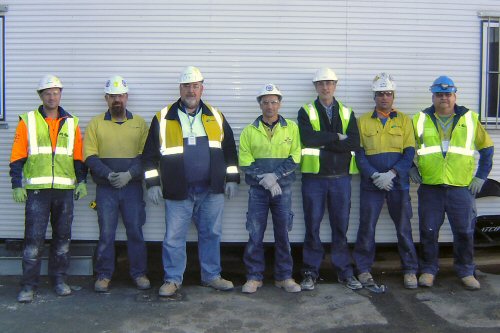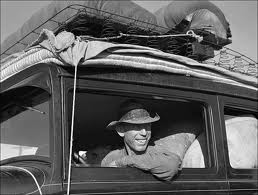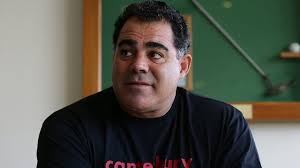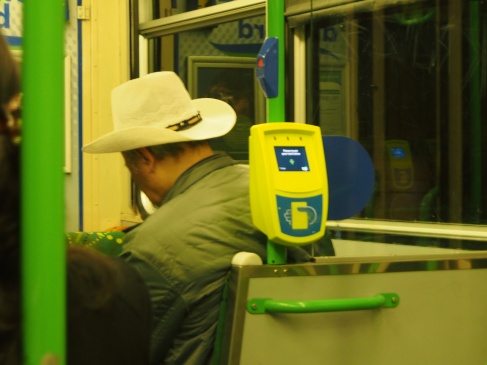
On Tuesday 17th September the Age Newspaper in Victoria ran the story below entitled “Mobile workers in full flight ” in which they highlight the shift toward mobility in the Victorian workforce. As per the report around 14,000 Victorian workers are now FIFO and this number is on the increase daily.
Simon Johanson the reporter from the Age called me to discuss the issues faced by FIFO families and to clarify some details about the issue before he wrote this article. The week before Simon called I sent a feature article I’d written about FIFO Family issues to the Age and although they did not publish my article I am encouraged and grateful that Simon was willing to not only call me to discuss the issues associated with FIFO work but chose to include a discussion about supporting FIFO families in an article that is fundamentally about changes to the commuter traffic in and out of Essendon Airport. Well done Simon!
Mobile Workers in full flight – The Age Newpaper September 17th 2013
http://www.theage.com.au/victoria/mobile-workers-in-full-flight-20130916-2tveh.html
Simon Johanson
Ballarat worker Leigh Brown’s shift starts as soon as he steps on a plane.
When the former construction worker lands at Newcrest’s Telfer mine in the Pilbara, Western Australia , four hours after boarding a small jet at Essendon Airport, he’s well into his two-week stint.
Now an exploration drilling supervisor , Mr Brown is one of an expanding group of fly in, fly out (FIFO) workers who represent a social shift towards an increasingly mobile workforce in Australia’s eastern cities, despite the resources downturn.
Mining companies Newcrest and OZ Minerals began the charter shuttle service out of Melbourne 18 months ago to ferry workers three days a week direct to the mines. The flights avoid bottlenecks at Perth’s airport and save the mines significant sums, cutting down employee travel times – for which most are paid – and using skilled workers in the eastern states.
‘‘ It’s an untapped resource,’’ says Scott McMillan, the managing director of the listed Alliance Airlines whose 31 aircraft fly 300 mining-related flights a week across the country.
‘‘ The mining growth has settled down but it’s not going to go away,’’ said Essendon Airport’s operations manager, Graham Weir.
When Alliance’s 70-seat Fokker jet arrives in Essendon, it is twothirds full of miners headed for Telfer’s Pilbara goldfields , having departed from Brisbane and stopped to pick up in Orange, NSW.
Most of the 1500-strong workforce who fly into OZ Minerals’ Prominent Hill open-pit and underground copper mines come from South Australia, where it is located, spokeswoman Rachel Eaves said. But about 20 per cent live on the east coast of Australia.
Melbourne-based Prominent Hill project engineer Leidy Alvarado is one. ‘‘ I can leave work at three o’clock and be home having dinner with my husband by 6.30,’’ Ms Alvarado said. ‘‘ This gives me much more quality time with my family,’’
About 5 per cent of Melbourne’s 14,000 long-distance commuters head for the country’s nine main mining regions, the Minerals Council of Australia estimates.
The long-distance lifestyle can have a negative emotional impact on families of mining or corporate commuters left at home.
Change specialist and FIFO documentary maker Linette Etheredge said: ‘‘ It’s a social and cultural phenomenon we have to actively address.’’
Staying in touch with an absent partner was one of the most difficult aspects of the FIFO lifestyle, said Fairfield mother of two Emily Van Roo, who recently set up a FIFO Families support group.
Some 213,733 Australians commute long distances to work, half of them in resource-related jobs.
‘‘ It’s a hard way to make a living,’’ Mr Brown says. But the rigours are somewhat offset by free meals, a golf driving range, indoor cricket, pool, bowls, squash court and gym at Telfer’s mine site.
‘‘ You always look forward to having a real meal at home,’’ he said.
sjohanson@fairfaxmedia.com.au
Copyright © 2013 Fairfax Media
Are you flying in and out of a smaller regional airport? Has this shift away from a large domestic airport in one of our capital cities helped to cut down your travel time? How has this impacted your time with your family? What do you look forward to most when you get home?
Let me know your thoughts and please share this blog with your friends by being friends with us on Facebook. https://www.facebook.com/fiforesearchproject











